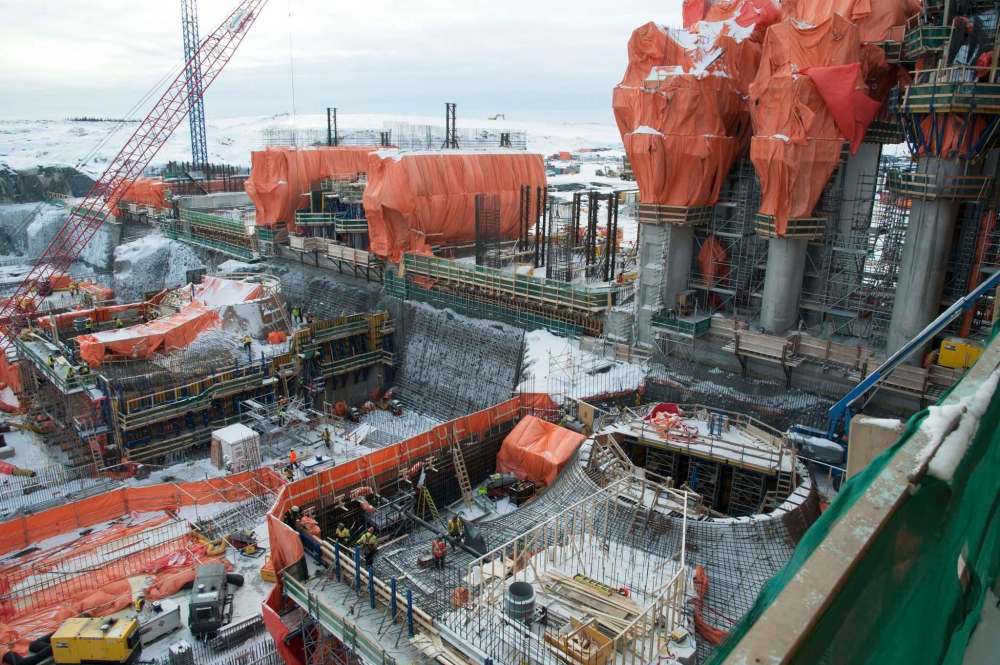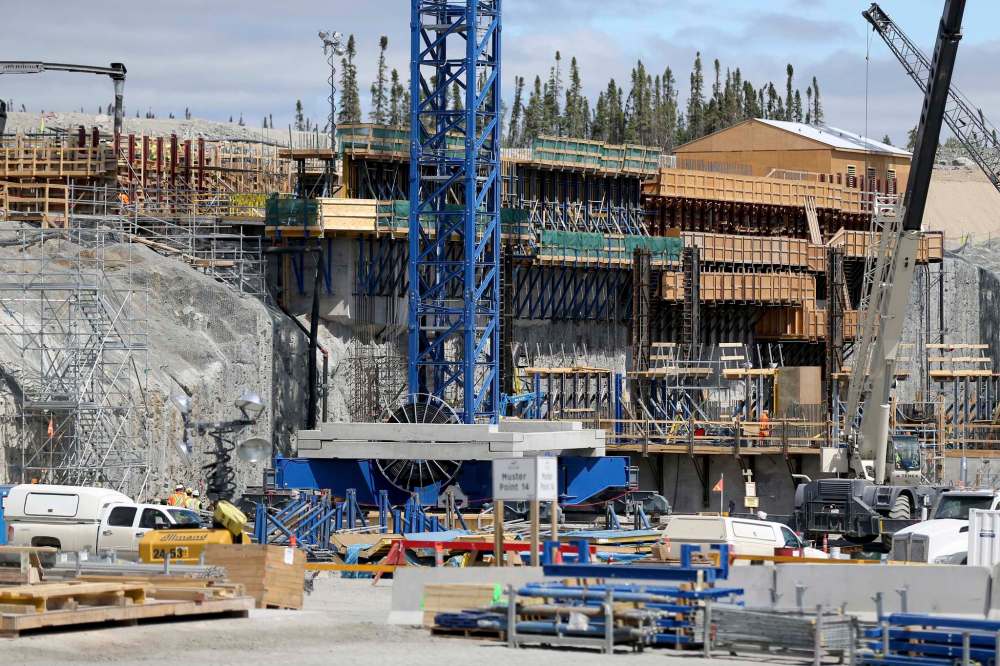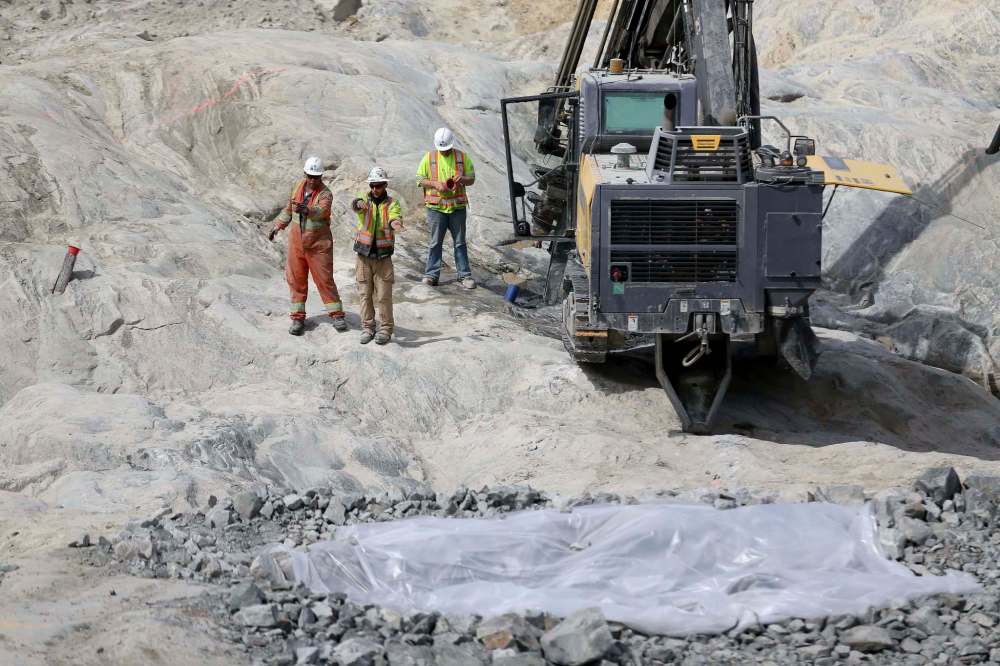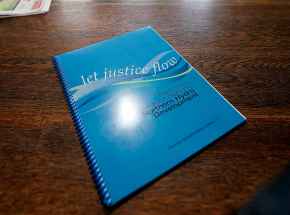Racism, substance abuse among Hydro workers’ grievances at Keeyask
Read this article for free:
or
Already have an account? Log in here »
To continue reading, please subscribe:
Monthly Digital Subscription
$0 for the first 4 weeks*
- Enjoy unlimited reading on winnipegfreepress.com
- Read the E-Edition, our digital replica newspaper
- Access News Break, our award-winning app
- Play interactive puzzles
*No charge for 4 weeks then price increases to the regular rate of $19.00 plus GST every four weeks. Offer available to new and qualified returning subscribers only. Cancel any time.
Monthly Digital Subscription
$4.75/week*
- Enjoy unlimited reading on winnipegfreepress.com
- Read the E-Edition, our digital replica newspaper
- Access News Break, our award-winning app
- Play interactive puzzles
*Billed as $19 plus GST every four weeks. Cancel any time.
To continue reading, please subscribe:
Add Free Press access to your Brandon Sun subscription for only an additional
$1 for the first 4 weeks*
*Your next subscription payment will increase by $1.00 and you will be charged $16.99 plus GST for four weeks. After four weeks, your payment will increase to $23.99 plus GST every four weeks.
Read unlimited articles for free today:
or
Already have an account? Log in here »
Hey there, time traveller!
This article was published 28/08/2018 (2660 days ago), so information in it may no longer be current.
In 2016, some Manitoba Hydro employees called the camp “Keeyask-atraz” and described prison-like conditions, alcohol and drug abuse, favouritism in the workplace and discrimination between Indigenous and non-Indigenous employees.
Many seemed unhappy and felt their grievances weren’t followed up on by management. One worker reported being called racial slurs such as “Pocahontas,” “seal eater” and “squaw,” and another was warned by a friend who previously worked at the Keeyask Generating Site that the experience was “a total gong show.”
But Hydro says the working environment has improved drastically at their construction site near Gillam, about 1,100 kilometres northeast of Winnipeg, since those allegations were levelled almost two years ago.“We found that many people bring their pre-conceived notions of race to the work force and when the work environment is difficult, these biases find expression through verbal abuse of construction co-workers and workers employed by other contractors/” –2017 report
After hearing about problems at Keeyask, the parties involved in the megaproject — including Hydro, Tataskweyak Cree Nation, War Lake First Nation, York Factory First Nation and Fox Lake Cree Nation — asked an independent third party to investigate.
D. Carriere & Associates, a First Nations-owned and operated human resources consulting firm, conducted 180 interviews with employees from October to December 2016 by phone, online and in person. The consultants also did an extensive review of documents and processes for making workplace complaints.

The assessment team “found a high level of fear of retaliation and retribution at the site among those interviewed,” according to its report. Many interviewees were nervous and some “broke down” emotionally during conversations with the consultants.
“There exists a mistrust of Manitoba Hydro…. Obviously, this becomes a serious issue when attempting to identify ways to move forward in addressing discrimination and harassment at the Keeyask site,” the report states.
The 2017 report came to light after the province released a damning Clean Environment Commission report last week that included historical allegations of sexual violence perpetuated by Hydro workers in the North. RCMP and the Independent Investigation Unit of Manitoba are determining next steps for a probe into allegations of sexual assault, which began in the 1960s, reported by members of Fox Lake Cree Nation.
Keeyask Workplace Culture Assessment Final Report
The Keeyask workplace culture report cites many instances of discrimination between Indigenous and non-Indigenous employees, including a perceived lack of advancement and training opportunities for Indigenous people. Racism and harassment were reported by both camps.

“We found that many people bring their pre-conceived notions of race to the work force and when the work environment is difficult, these biases find expression through verbal abuse of construction co-workers and workers employed by other contractors,” the report reads.
“Differing worldviews” became evident in interviews, the consultants wrote. Some employees thought Indigenous workers “are allowed to “get away” with (a) lot more than non-Indigenous workers. Examples provided included no punishments for absences, tardiness, and “running to Chief and Council,” with concerns, the report states.
Some Indigenous workers thought it only natural to approach their chiefs and councils with concerns first, as is the cultural norm in many Indigenous communities. Many weren’t accustomed to unions and filing grievances with onsite management.
Drug, alcohol issues reviewed
The assessment team also recommended Keeyask’s drug and alcohol policy be reviewed.
While there was a lounge adjacent to the main workers’ camp with a limit of three alcoholic drinks per person, those found intoxicated or in possession of other drugs or alcohol were to “be immediately removed from site and subject to a one-year ban from all Manitoba Hydro sites,” according to the policy.
The rationale for the requirement was safety on the job.“Many expressed that managers appear to be exempt from the immediate removal provision of the policy. For example, we heard from various participants that despite evidence of empty liquor bottles in management rooms being given to security, no managers were removed from site. We were told: ‘Hydro employees say no drugs or alcohol, but are selling mickeys for $40 or $50.'” –2017 report
“Concerns were raised that the security searches of baggage do little to deter the importing of drugs and alcohol at the site, as body searches are not allowed and it is through this method that many smuggle in drugs or alcohol,” the report reads. “Others indicated that individuals find alternate means for smuggling such as drop zones.”
The consultants called a one-year ban from work “harsh” and said it had a disproportionate effect on Indigenous and northern Manitoban employees, who often didn’t have other job opportunities besides Hydro. The consistency of how the drug and alcohol policy was applied was also called into question.
“Many expressed that managers appear to be exempt from the immediate removal provision of the policy. For example, we heard from various participants that despite evidence of empty liquor bottles in management rooms being given to security, no managers were removed from site. We were told: ‘Hydro employees say no drugs or alcohol, but are selling mickeys for $40 or $50.'”
Most of report’s recommendations implemented
On Tuesday, Hydro spokesman Bruce Owen said the one-year ban is still in effect for those who violate the policy. The rule, he said, is “reasonable and relatively aligned with similar projects.”
“The policy is stringent because the potential consequences of reporting to work in an unfit condition are serious,” Owen said in an email. “A strong deterrent is viewed as necessary to protect the safety of all workers.
He added that in situations where an addiction is diagnosed by an expert, individuals may be reinstated inside of a year if they complete treatment programs.
The report also detailed concerns from employees about working long stretches at a time — often 21 days on and seven days off — leading to stress on family life. One worker wrote: “Work rotation IS TOO LONG, 21 days is TOO LONG TO BE AWAY FROM HOME.”

Hydro said 63 of the 64 recommendations for improvements outlined in the report have been completed. The one remaining — that conflict-resolution training is made mandatory for all managers — is underway.
“We continue to monitor the outcome of the implementation of all recommendations and work with our partners and contractors to find solutions to these complex and challenging issues,” Owen wrote.
Calls to three Keeyask partners — Tataskweyak Cree Nation, War Lake First Nation and Fox Lake Cree Nation — were not returned Tuesday. York Factory First Nation Chief Leroy Constant answered the phone, but declined a request for comment.
“I’m familiar (with the report). This is a touchy one for us,” he said, but added he would comment after establishing a group response.
jessica.botelho@freepress.mb.ca Twitter: @_jessbu



















